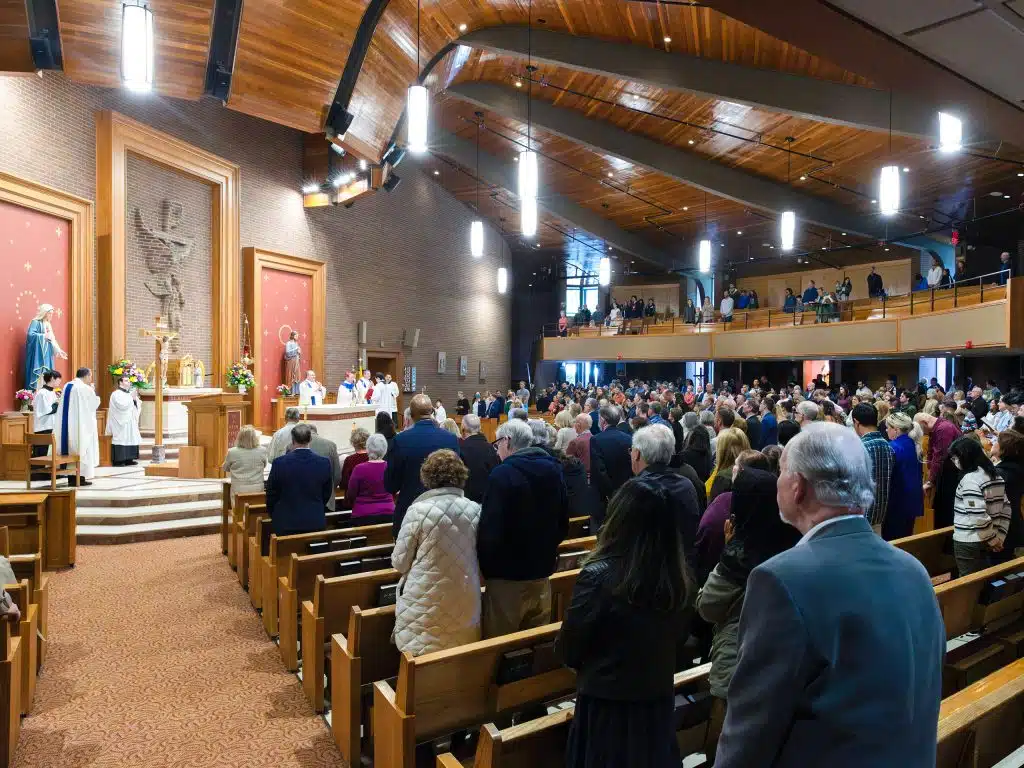Penance, also referred to as self-denial and mortification, joins prayer and almsgiving as the “works” of Lent that the church points to as necessary if we wish to imitate Jesus Christ.
Many penitential practices are connected to food and drink. Food and drink have been abused before, but today there is evidence of much gluttony. Advertisers frequently proclaim that people must eat and drink a lot to be happy and well-adjusted.
The cardinal virtue of temperance should always be fostered, regardless of the liturgical season. We who are the disciples of Jesus are called at all times to be disciplined in food and beverage intake.
Temperance is also concerned with the “attachment” to food and drink so that we will not become a slave to either.
St. Joseph Cafasso (1811-60), the rector of the Ecclesiastical College in Turin, Italy, warned that overeating was not the only fault regarding food. He mentioned the five failings of the table that need to be battled: eating infrequently, eating too quickly, eating too much, eating over-eagerly and eating over-deliberately.
In each case, food loses its proper place. The table either assumes a greater influence than it should have or it is nearly dismissed as being of little value.
A priest from the Archdiocese of Turin learned a valuable lesson about the proper place of food on one occasion in which he ate with St. Joseph. That priest, known for his penchant, in his own words, “to pounce on the food and devour it with too much dispatch,” was asked by the saint if he remembered the five dangers regarding eating.
Without hesitation, the young priest rattled off the list.
He concluded, “Then I realized what I had been doing, blushed and profited by the lesson.”
More than one spiritual writer has counseled that every meal should be an occasion of mortification: we should always leave the table a little hungry or thirsty. Then, we not only share in the hunger and thirst of Christ on Calvary but also help prevent ourselves from becoming gluttons and drunkards.
William Arthur Ward (1921-94) identified other kinds of self-denial.
Fast from judging others; feast on the Christ dwelling within them.
Fast from emphasis on differences; feast on the unity of all life.
Fast from apparent darkness; feast on the reality of light.
Fast from thoughts of illness; feast on the healing power of God.
Fast from words that pollute; feast on phrases that purify.
Fast from discontent; feast on gratitude.
Fast from anger; feast on patience.
Fast from pessimism; feast on optimism.
Fast from worry; feast on divine order.
Fast from complaining; feast on appreciation.
Fast from negatives; feast on affirmatives.
Fast from unrelenting pressures; feast on unceasing prayer.
Fast from hostility; feast on non-resistance.
Fast from bitterness; feast on forgiveness.
Fast from self-concern; feast on compassion for others.
Fast from personal anxiety; feast on eternal Truth.
Fast from discouragement; feast on hope.
Fast from facts that depress; feast on verities that uplift.
Fast from lethargy; feast on enthusiasm.
Fast from suspicion; feast on truth.
Fast from thoughts that weaken; feast on promises that inspire.
Fast from shadows of sorrow; feast on the sunlight of serenity.
Fast from idle gossip; feast on purposeful silence.
Fast from problems that overwhelm; feast on prayer that undergirds.
We ask Our Lady to make us more temperate. And may our penance this Lent help us to adore more intensely and love more ardently the Christ present in the most Blessed Sacrament who gave up his life for us.
Msgr. Mangan is on the faculty of Mt. St. Mary’s Seminary in Emmitsburg.



Disconnected spirituality